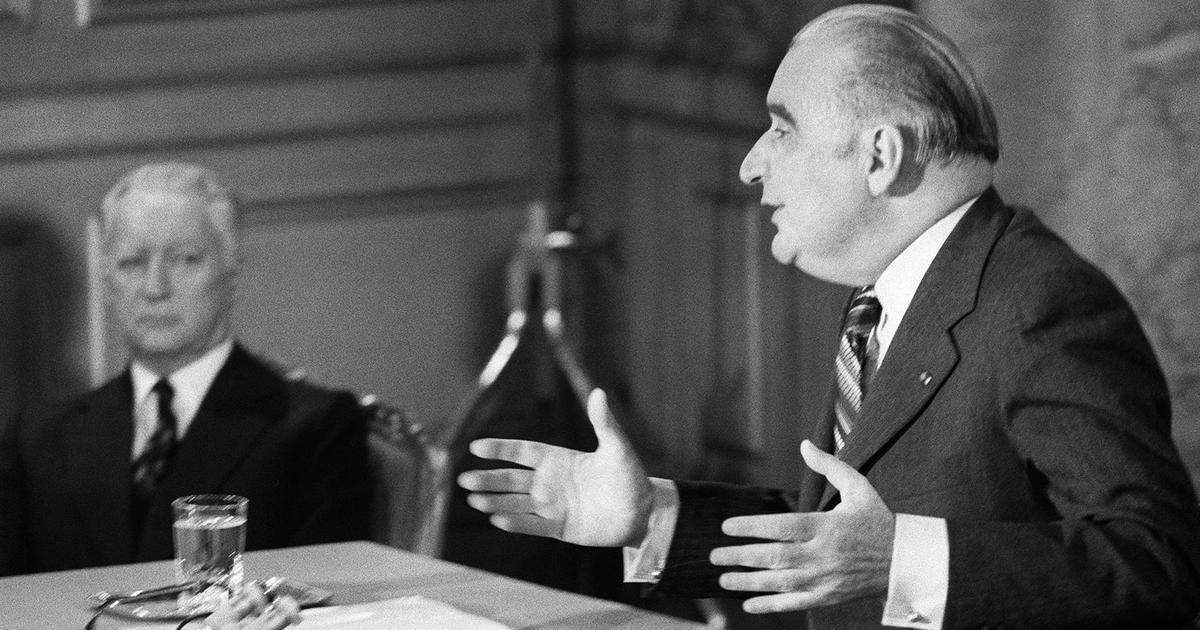Pierre Manenti is a historian and author of
The Barons of Gaullism
(Passés composed, 2024).
To discover
PODCAST - Listen to the club Le Club Le Figaro Idées with Eugénie Bastié
Michael Miguères is an essayist and author of
Pompidou, The Last President Who Made France Win
(Ramsay, 2016).
Georges Pompidou had a vision for the future. As we commemorate, this year, the fiftieth anniversary of the disappearance of Georges Pompidou (1911-1974), historical collaborator of General de Gaulle, deputy, Prime Minister then President of the Republic, this moment must not only be an exercise of memory or nostalgia, it is also an invitation to rethink the present and the future in the light of its principles.
Georges Pompidou is undoubtedly the architect of French modernity, as his mandates at the head of the country were marked by a dynamic of unprecedented economic, social and technological progress. It is the inauguration of the Paris ring road, the launch of the high-speed train (TGV) project, the Ariane space program and even the launch of civil nuclear power. It is also the emblematic successes of the Franco-German Airbus project and the Franco-British Concorde partnership.
If Georges Pompidou ensured that these technological efforts ensured our place on the international scene, thus by launching the Calcul Plan, in 1965, to promote the development of a French computer industry, he also ensured that these successes were accompanied by a dynamic of social rebalancing, benefiting more than proportionately the most deprived. France, respected by its major foreign partners, was then a champion in terms of innovation and research, as a leading economic and industrial power.
A brilliant politician, marked as much by his peasant common sense as by his studies of literature, Georges Pompidou was particularly concerned about the effectiveness of public policies and marked by a certain pragmatism.
Pierre Manenti and Michael Miguères
At the same time, Georges Pompidou, grandson of peasants and son of a couple of teachers, was keen to preserve the cultural roots of our country, as well as its deep identity. Literature, poetry, haute couture, culinary heritage, as well as France's place on the world artistic scene, were at the heart of the concerns of the man who had made it his reserved domain when he arrived at the Élysée, in 1969. A Baudelairian at heart, he was keen to show his concern for reconciling tradition and modernity, but also for preserving a balance between State responsibilities and individual autonomy.
A brilliant politician, marked as much by his peasant common sense as by his studies of literature, Georges Pompidou was particularly concerned about the effectiveness of public policies and marked by a certain pragmatism. If he is thus the man responsible for the urbanization of the country and the development of major transport infrastructures, he is also the first President of the Republic to have created a Ministry of the Environment, in 1971, proof of a -guardism in terms of preserving natural heritage and ecological transition. He thus reconciled tradition and modernity.
Criticism of norms and technostructure, thus with his famous
“Stop annoying the French! There are too many laws, too many regulations in this country!”
, Georges Pompidou was finally a politician listened to and respected by our compatriots. Incarnation of the
“happy years”
, it conveys the image of a happy France, reconciling greatness and personal fulfillment, demands and prosperity. And the French paid him back; Georges Pompidou is the last President of the Republic whose popularity rating did not fall below 50% during his mandate, proof of his ability to overcome divisions and bring the French together.
Georges Pompidou is not just a page in our history books but a man whose policies and principles have their place in the current political debate.
Pierre Manenti and Michael Miguères
Observing, with the birth of the consumer society, the malaise of Western civilization, he was however worried about the disappearance of the major social frameworks (family, religion, profession) but remained deeply convinced that the mission of politics was to "give
back the taste for an ideal beyond national or personal interest
. He also made culture a national priority, seeing it as the oxygen necessary for the souls of new societies!
By his defense of a society in movement, of the voice and place of France in world affairs, as well as his concern to establish a peaceful and united society, Georges Pompidou was and remains a politician whose message is blatantly topical. What made it possible, 50 years ago, to make our country shine can be mobilized again by public decision-makers, provided that they find the right balances that they were able to define in their time. Proof, if any were needed, that Georges Pompidou is not just a page in our history books but a man whose policies and principles have their place in the current political debate.

